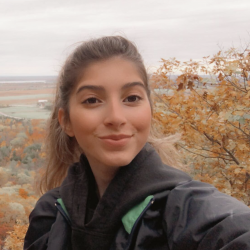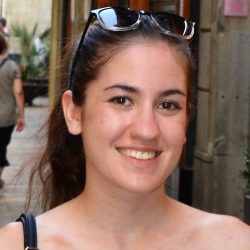Supervisor

Matthew Pamenter, Ph.D.
Associate Professor of Biology
I received my Ph.D. from the University of Toronto (2003-2008), where I studied neural mechanisms of anoxia-tolerance in turtle brain in the Buck lab. I then travelled to California to undertake a postdoctoral fellowship in the Haddad lab at UCSD (2008-2012), where I studied mechanisms of ischemic cell death in mammalian stroke models. In 2012, I began a second postdoctoral fellowship, split between the Powell lab at UCSD and the Milsom lab at UBC (2012-2015), studying neural plasticity in the hypoxic ventilatory response of rodents, including the naked mole-rat.
I am broadly interested in how hypoxia-tolerant animals have evolved to survive in low-oxygen environments. My primary focus is discovering cellular and physiological mechanisms of hypoxia-tolerance, with a specific interest in how brain cells survive with little to no oxygen and how neural networks control physiological responses to hypoxia.
Lab Members

Mo Ojaghi
Ph.D. Student (2019- )
Publications:
Ojaghi M and Pamenter ME (2024). Hypoxia impairs blood glucose homeostasis in naked mole-rat subordinate adults but not queens. Journal of Experimental Biology.
Kadamani KL, Rehnamaie-Tajadod R, Eaton L, Bengstson J, Ojaghi M, Cheng H and Pamenter ME (2024). What can naked mole-rats teach us about ameliorating hypoxia-related human diseases? Annals of the New York Academy of Sciences.
Ingelson-Filpula WA, Kadamani KL, Ojaghi M, Pamenter ME and Storey KB (2024). Hypoxia-induced down regulation of RNA m6A protein machinery in the naked mole-rat heart. Biochimie.

Liam Eaton
Ph.D. Student (2018- )
Publications:
Kadamani KL, Rehnamaie-Tajadod R, Eaton L, Bengstson J, Ojaghi M, Cheng H and Pamenter ME (2024). What can naked mole-rats teach us about ameliorating hypoxia-related human diseases? Annals of the New York Academy of Sciences.

Karen Kadamani
Honours B.Sc. Student (2019-2020); Ph.D. Student (2020- )
Publications:
Kadamani KL, Rehnamaie-Tajadod R, Eaton L, Bengstson J, Ojaghi M, Cheng H and Pamenter ME (2024). What can naked mole-rats teach us about ameliorating hypoxia-related human diseases? Annals of the New York Academy of Sciences.
Ingelson-Filpula WA, Kadamani KL, Ojaghi M, Pamenter ME and Storey KB (2024). Hypoxia-induced down regulation of RNA m6A protein machinery in the naked mole-rat heart. Biochimie.

Reyhaneh Rahnamaie-Tajadod
Ph.D. Student (2024- )
Publications:
Kadamani KL, Rehnamaie-Tajadod R, Eaton L, Bengstson J, Ojaghi M, Cheng H and Pamenter ME (2024). What can naked mole-rats teach us about ameliorating hypoxia-related human diseases? Annals of the New York Academy of Sciences.

Catherine Cao
M.Sc. Student (2024- )

Michael Qi
B.Sc. Student Volunteer, Honours B.Sc. Student (2022- )

Gloria Lamontagne
Honours B.Sc. Student (2023- )

Amar Bhandari
USRO undergraduate student (2023- )

Pareesa Lashani
B.Sc. Student volunteer, Honours B.Sc. student (2023- )

Aleezah Shaikh
Undergraduate student (2024- )

Deanna Turchyn
Undergraduate student (2024- )

Neha Erukulla
Honours B.Sc. student (2024- )

Yasmine Yassine
Undergraduate student (2024- )

Areeb Shaifuddien
Undergraduate student (2024- )
Lab Alumni

John Bengtsson
NSERC USRA Awardee, Honours B.Sc. Student (2022-2024)
Publications:
Kadamani KL, Rehnamaie-Tajadod R, Eaton L, Bengstson J, Ojaghi M, Cheng H and Pamenter ME (2024). What can naked mole-rats teach us about ameliorating hypoxia-related human diseases? Annals of the New York Academy of Sciences.

Claire Della Torre
B.Sc. Student Volunteer (2023-2024)

Soumiya Sivasathiyanathan
B.Sc. Student Volunteer (2023-2024)

George Otell
Honours B.Sc. Student, NSERC USRA Awardee (2023-2024)

Maiah Devereaux
Honours B.Sc. Student (2018-2019); M.Sc. Student (2019-2023)
B.Sc. Thesis title: Metabolic, ventilatory, and thermoregulatory responses of giant Zambian mole-rats to graded hypoxia and hypercapnia
M.Sc. Thesis title: Central nervous system mechanisms mediating the hypoxic ventilatory and metabolic responses of adult Damaraland mole-rats (Fukomys damarensis)
Publications:
Abar S, Devereaux MEM, Careau V and Pamenter ME (2025). Hypoxia and thermogenesis constraint peak VO2 in exercising naked mole-rats. Ecological and Evolutionary Physiology.
Devereaux MEM and Pamenter ME (2023). Adenosine and gamma-aminobutyric acid partially regulate metabolic and ventilatory responses of Damaraland mole-rats to acute hypoxia. Journal of Experimental Biology.

Abdul Karim Halal
B.Sc. Student Volunteer, UROP awardee (2022-2023)
Publications:

Nathalie Marks de Chabris
Honours B.Sc. Student (2022-2023)
Publication:

Bogdan Tirca
Honours B.Sc. Student (2022-2023)

Hang Cheng
Ph.D. Student (2018-2023)
2024 Cameron Award Winner for the best doctoral thesis in zoology in Canada
Doctoral Thesis title: Mitochondria: hubs of hypoxia-tolerance in naked mole-rats
Publications:
Kadamani KL, Rehnamaie-Tajadod R, Eaton L, Bengstson J, Ojaghi M, Cheng H and Pamenter ME (2024). What can naked mole-rats teach us about ameliorating hypoxia-related human diseases? Annals of the New York Academy of Sciences.

Sidney Abar
Honours B.Sc. Student (2021-2022)
Publications:
Abar S, Devereaux MEM, Careau V and Pamenter ME (2025). Hypoxia and thermogenesis constraint peak VO2 in exercising naked mole-rats. Ecological and Evolutionary Physiology.

Isabella Welch
Honours B.Sc. Student (2021-2022)
B.Sc. Thesis title: Identifying the roles of NADPH complex I of the mitochondrial electron transport chain in the production of reactive oxygen species in African naked mole-rat (Heterocephalus glaber) brain.
Publications:

Jaina Patel
B.Sc. Student (2021-2022)

Bizav Jaffer
Honours B.Sc. Student (2021-2022)

Soulene Sabir
UROP awardee (2021-2022)
Project title: Adapted citrate synthase activity in naked mole rats
Publication:

Katia Hughes
NSERC USRA awardee (2021)

Kenny Huynh
UROP awardee; NSERC USRA awardee; Honours B.Sc. Student (2018-2021)
B.Sc. Thesis title: Mitochondrial plasticity in acutely hypoxic naked mole rat heart.
Publications:

Kate Brennan
Honours B.Sc. Student (2020-2021)
B.Sc. Thesis title: Effects of glutamate receptor antagonists on the hypoxic ventilatory response of Damaraland mole-rats.
Publication:

Maria Roy
Honours B.Sc. Student (2019-2020)
B.Sc. Thesis title: Hypoxia-mediated changes in n-methyl-d-aspartate-evoked calcium flux in naked mole-rat cortex.
Publication:

Sarah Chiasson
Honours B.Sc. Student (2019-2020)
B.Sc. Thesis title: Glutamatergic receptors modulate the ventilatory but not metabolic response to acute hypoxia.
Publications:

Daniel Munro, Ph.D.
Postdoctoral Fellow (2017-2019)
Publications:
Pamenter ME and Munro D (2019), Longevity or hypoxia: who’s driving? Aging-US

Chau Nguyen
NSERC USRA awardee; Co-op work placement; Honours B.Sc. Student (2016-2019)
B.Sc. Thesis title: Exploring the contribution of heat shock protein to the hypoxia-tolerance of the naked mole-rat
Publications:
Al-attar R, Childers CL, Nguyen VC, Pamenter ME and Storey KB (2020). Differential protein phosphorylation is responsible for hypoxia-induced regulation of the Akt/mTOR pathway in naked mole-rats. Comparative Physiology and Biochemistry.

Samantha Torne
Honours B.Sc. Student (2018-2019)

Tina Wang
Honours B.Sc. Student (2018-2019)
B.Sc. Thesis title: Naked mole-rat neurons control reactive nitrogen species production during reperfusion following hypoxia or ischemia.
Publications:

Salome Cadrin-Aubin
Honours B.Sc. Student (2018-2019)
B.Sc. Thesis title: Vascular adaptations in muscle to exercise / work in hypoxia in 6 species of African mole rats.

Lisa Borecky
M.Sc. Student (2015-2018)
M.Sc. Thesis title: Hypoxia inducible factor and the control of hypoxic ventilatory and metabolic responses in Mus Musculus and heterocephalus glaber.
Publications:
Borecky LG and Pamenter ME (2017). Oxygen sensing and transcriptional regulation of adaptive hypoxic responses. In: Chemosensory sensors and systems: evolutionary significance biological effects, and new insights. New York, USA: Nova Science (M. Brandt, ed.).

Cécile Baldy, Ph.D.
Postdoctoral Fellow (2017-2018)
Publications:
Pamenter ME and Baldy C. (2017). Chronic intermittent hypoxia contributes to sleep-disordered breathing in infants and adults. Berlin, GER: Avid Science. (S. Ravini, ed.).

Amanda Zhu-Pawlowsky
B.Sc. Student (Summer 2018)
Project title: Exploring the role of a moisture-mediated body temperature cooling strategy in hypoxic naked mole rats
Publication:

Sarah Zhang
NSERC USRA awardee; Honours B.Sc. Student (2017-2018)
B.Sc. Thesis title: Hypercapnic ventilatory and metabolic responses in the fossorial Damaraland mole rat: a whole-body and mechanistic perspective
Publications:

Travis Branigan
Honours B.Sc. Student (2017-2018)
B.Sc. Thesis title: Behavioural Responses to Environmental Hypercapnia in Damaraland Mole Rats (Fukomys damarensis)
Publication:

Nikita Malholtra
B.Sc. Student Volunteer (2017-2018)
Project title: Thermal adaptations to acute hypoxia in naked mole rats
Publication:

Amanda Vandewint
Honours B.Sc. Student (2017-2018)
B.Sc. Thesis title: Exploring the role of a moisture-mediated body temperature cooling strategy in hypoxic naked mole rats
Publication:

Lewis Han
UROP awardee (2017-2018)

Alexia Kirby
B.Sc. Student (2015-2016); M.Sc. Student (2016-2018)
B.Sc. Thesis title: Behavioural, thermal, and metabolic strategies of the naked mole rat, Hetercephalus glaber, in hypoxia.
M.Sc. Thesis title: Metabolic adaptations to acute hypoxia in naked mole rats.
Publications:
Hart DW, Bennett NC, Best C, van Jaarsveld B, Cheng H, Ivy CM, Kirby AM, Munro D, Sprenger RJ, Storey KB, Milsom WK and Pamenter ME (2023). The relationship between hypoxia exposure and circulating cortisol levels in social and solitary African mole-rats. General and Comparative Endocrinology.
Max Clayson
Honours B.Sc. Student (2016-2017)
B.Sc. Thesis title: The role of carbonic anhydrase in modulating metabolic and ventilatory responses to hypercapnia in naked mole-rats
Publication:
Chelsea Houlahan
Honours B.Sc. Student (2016-2017)
B.Sc. Thesis title: The effects of hypoxia on the behavioural and thermoregulatory huddling responses of the naked mole rat
Publication:
Sulaf Elkhalifa
Honours B.Sc. Student (2016-2017)
B.Sc. Thesis title: Behavioural and thermal responses to hypercapnia in naked mole-rats
Publication:

Aaron Ilacqua
Honours B.Sc. Student (2015-2016)
B.Sc. Thesis title: Behavioural and thermal responses of individual naked mole rats to environmental hypoxia within their thermoneutral zone
Publication:
Garrett Fairman
NSERC USRA awardee (summer 2016)
Publications:

Sharn Gill
B.Sc. Student Volunteer (2015-2016)
Project title: Exploring the role of glutamatergic receptors in the control of ventilatory responses to acute and chronic hypoxia in naked mole rats
Publication:



